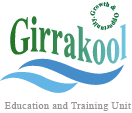26
SeptemberWhispered Rehab Chiang Mai Secrets
Introduction
Alcohol detox is a vital process in the trip of recovery for individuals struggling with alcoholic beverages addiction. It aims to expel toxins from body while handling withdrawal symptoms. This report explores the significance of alcoholic beverages detoxification, the observable symptoms experienced during detox, therefore the techniques utilized assure a safe and effective cleansing process.
Importance of Alcohol Detox
Alcohol detoxification plays a pivotal role in addiction data recovery as a result of the real and psychological reliance that develops over time. Persistent alcohol abuse contributes to alterations in brain biochemistry, resulting in detachment symptoms whenever alcohol consumption is ceased. These signs can include tremors, anxiety, insomnia, sickness, as well as seizures. By undergoing detox, people can overcome the instant physical ramifications of liquor withdrawal, setting the stage for further therapy and lasting recovery.
Symptoms Experienced During Alcohol Detox
During alcohol cleansing, individuals may experience a wide range of withdrawal signs that can differ in severity. Mild signs may include shaking, perspiring, and headaches, while more severe situations can include hallucinations, delirium, and seizures. The power and extent of the signs rely on various aspects, including the quantity and length of time of alcoholic abuse, individual health problems, and past detox experiences. It's important to observe that these symptoms may be life-threatening, showcasing the need of medical direction during the detox procedure.
Methods of Alcohol Detox
You can find different ways and options available for alcohol cleansing, and that can be classified into outpatient, inpatient, and hospital-based cleansing services. Outpatient detox programs offer flexibility, enabling individuals to obtain treatment while living home. But these are typically generally recommended for people with mild withdrawal symptoms and Rehab Center Thailand a strong help system. Inpatient detoxification programs offer a controlled environment with 24/7 health care bills, making sure instant awareness of any complications which could arise. Hospital-based cleansing, however, would work for folks with serious detachment symptoms, needing an increased amount of health intervention.
During detoxification, health specialists may administer medications to ease withdrawal signs and lower disquiet. Medications particularly benzodiazepines, anticonvulsants, and anti-anxiety drugs are commonly used to manage withdrawal symptoms effortlessly. In addition, doctors track important signs, provide guidance services, and apply a comprehensive plan for treatment to address the root factors behind liquor addiction.
Conclusion
Alcohol cleansing is a vital step towards data recovery, aiding individuals in handling detachment signs and reducing the chance of complications. It offers a safe and monitored environment for individuals to remove toxins from their bodies and prepares all of them for further therapy modalities. However, it is really important to recognize that cleansing alone is certainly not a complete answer but rather the initial stage of a thorough plan for treatment. Following cleansing, people should-be promoted to take part in guidance, therapy, and organizations to handle the mental and personal facets of liquor addiction. By acknowledging the importance of alcohol cleansing and providing comprehensive attention, health specialists can provide individuals struggling with alcoholic beverages addiction a larger chance at lasting data recovery.

